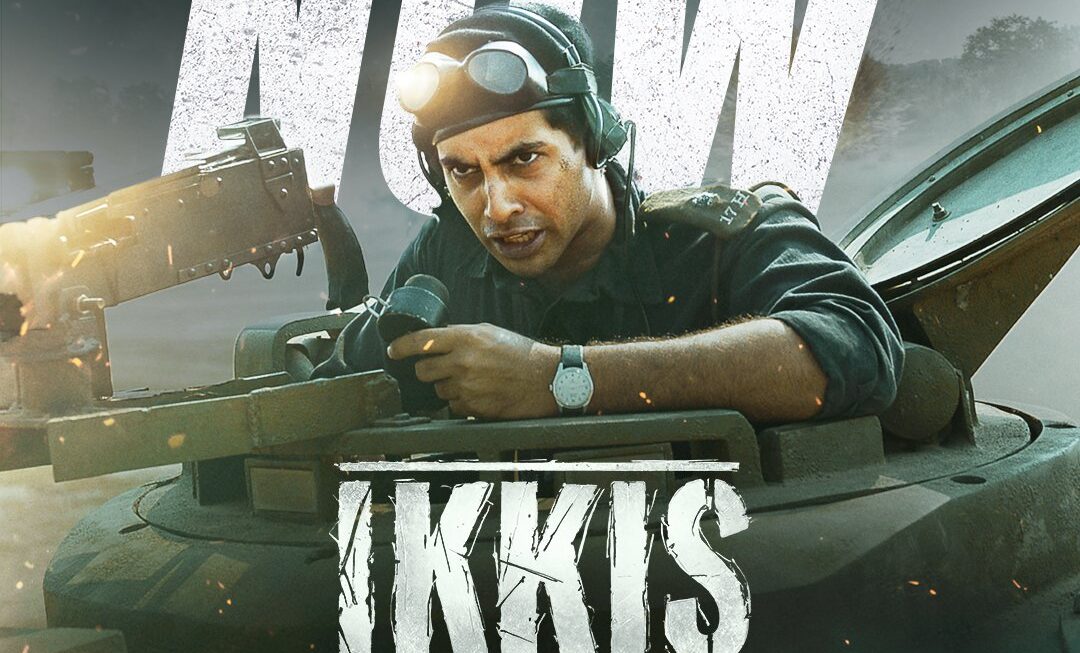
“Salakaar,” the latest JioHotstar original that premiered on August 8, 2025, dives into the high-stakes world of espionage, weaving a narrative across two timelines—1978 and 2025. Directed by Faruk Kabir and starring Naveen Kasturia, Mouni Roy, Mukesh Rishi, and Surya Sharma, this five-episode series attempts to blend gritty spy drama with emotional depth, drawing loose inspiration from real-life events, including the exploits of India’s National Security Advisor, Ajit Doval. While the show boasts a compelling premise and strong performances, it stumbles with inconsistent writing and logical gaps, making it a mixed bag for thriller enthusiasts.
Plot and Premise
Set against the backdrop of India-Pakistan tensions, “Salakaar” follows Adhir Dayal (Naveen Kasturia), a young RAW operative in 1978 tasked with infiltrating Pakistan’s covert nuclear program in Kahuta. The narrative alternates between his daring mission and a 2025 storyline where past secrets resurface, threatening national security. The show explores themes of loyalty, sacrifice, and the emotional toll of espionage, with a veteran spymaster’s legacy tying the timelines together. The premise is ambitious, aiming to merge historical context with fictional intrigue, but the execution often lacks the sharpness needed to sustain tension.

Performances
Naveen Kasturia shines as Adhir, bringing a quiet intensity and emotional restraint to the role. His portrayal of a cerebral yet conflicted spy is the heart of the series, making even the weaker moments watchable. Mukesh Rishi delivers a commanding performance as the seasoned spymaster, exuding gravitas and anchoring the 2025 timeline. Surya Sharma’s portrayal of Colonel Ashfaq Ullah, a staunch anti-India figure, is menacing and effective, though his character feels underdeveloped. Mouni Roy, as Mariam/Shrishti, struggles with an underwritten role that leans heavily on emotional distress, limiting her ability to showcase her versatility despite a committed performance.
Direction and Cinematography
Faruk Kabir’s direction is a mixed bag. He prioritizes emotional stakes over action-heavy spectacle, a refreshing choice for the genre, but the pacing drags in parts, particularly in the 2025 timeline, where the stakes feel vague. Moments like a poignant exchange between Adhir and a Baloch sarpanch in 1978, where Adhir calls himself “ek achcha padosi” (a good neighbor), showcase Kabir’s ability to blend subtlety with patriotism. However, the series falters with inconsistent tone, oscillating between gritty realism and exaggerated drama. Jitan Harmeet Singh’s cinematography is a highlight, with evocative 1978 flashbacks capturing period authenticity through muted tones and detailed sets. The 2025 scenes, however, feel less immersive, with some geographical inaccuracies—like Kahuta’s terrain appearing overly barren—jarring the viewer.

Writing and Narrative
The writing, penned by Srinivas Abrol, is where “Salakaar” stumbles most. While the concept of intertwining dual timelines is intriguing, the execution feels rushed, with plot holes and logical lapses undermining the suspense. For instance, a dramatic explosion at a nuclear facility leaves Adhir implausibly unscathed, and security protocols in high-stakes areas like Kahuta appear lax, defying credibility. The 2025 storyline lacks clarity, with the mission’s objectives poorly defined, making it hard to stay invested. Additionally, the series’ reliance on jingoistic undertones feels dated, especially given the shifting geopolitical landscape, which dilutes its relevance. A few standout moments, like clever historical nods (e.g., a reference to Kapil Dev’s 1978 test debut), add charm but can’t salvage the uneven script.
Technical Aspects and Pacing
The series’ five-episode format, with each episode around 30 minutes, makes it a quick binge, ideal for a weekend watch. The editing by Sandeep Francis occasionally shines with clever match cuts, but the pacing suffers from abrupt time jumps that disrupt narrative flow. The action sequences are competently staged but lack the edge of top-tier spy thrillers like “Fauda” or “The Spy.” The background score is serviceable but forgettable, failing to elevate the tension in critical moments.

What Works and What Doesn’t
“Salakaar” excels in its performances and moments of emotional clarity, particularly in the 1978 timeline, where the stakes feel tangible. The show’s attempt to humanize spies through themes of sacrifice and legacy is commendable, and its historical inspiration adds intrigue. However, weak writing, inconsistent logic, and a lack of narrative cohesion hold it back from being a genre-defining thriller. The treatment of female characters, particularly Mouni Roy’s, feels reductive, and the modern timeline’s reliance on cliched tropes—like AI-powered glasses—feels out of place.

Verdict
“Salakaar” is a watchable spy thriller with a strong cast and an ambitious premise, but it falls short of its potential due to flawed writing and execution. Fans of espionage dramas may enjoy its short runtime and standout performances, particularly from Naveen Kasturia and Mukesh Rishi, but those expecting a taut, polished thriller might be disappointed. It’s a decent weekend binge for viewers willing to overlook its inconsistencies, but it doesn’t quite live up to the hype of being a tribute to India’s unsung intelligence heroes.
Rating: 2.5/5
Recommendation: Watch for the performances & historical nods, but temper expectations for a flawless spy saga.



